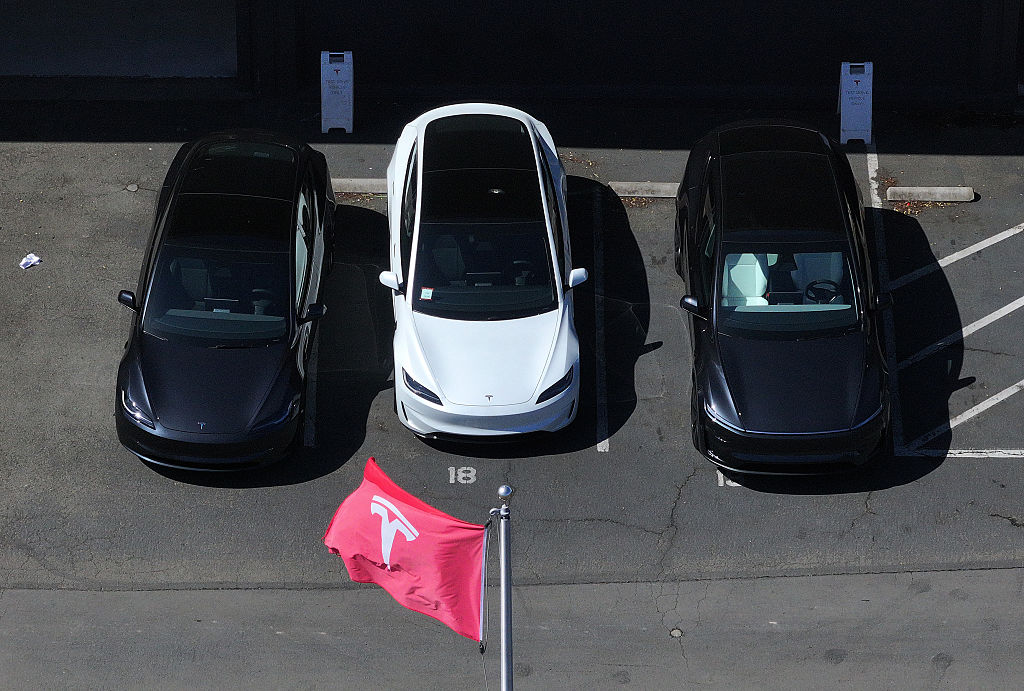It didn’t take long for Elon Musk’s political advocacy and work in the Trump Administration to erode Tesla’s position as America’s uncontestable electric vehicle leader. As left-leaning consumers and outraged moderates complained about his crusade to remake the U.S. government, Tesla’s car sales declined in the first quarter of 2025 from the previous year. And, on Tuesday, the company reported a 71% decline in net income for the same period. All of this has been reflected in a share price that has declined more than 40% since its peak last December.
[time-brightcove not-tgx=”true”]
Not too long ago, Tesla’s struggles would have been seen as a warning sign for broader EV takeup—and the push for decarbonizing transportation more broadly. The company was the first in the U.S. to market an electric car with mass appeal and remains the biggest purveyor of such vehicles stateside.
But the bigger picture has evolved: the success of EVs is no longer tethered to Tesla’s success. EV sales in the U.S. increased year-over-year for nearly every other automaker. In Europe, Volkswagen’s EV sales overtook those of Tesla, making the German company the continent’s top EV producer. Globally, Chinese automaker BYD was the best selling EV brand in the first quarter. Projections vary, but analysts still expect EV deployment to continue at pace—in the U.S. and around the world.
Tesla forged the path to EVs, but it may not be the leader that takes the U.S. all the way to an electric future.
Just from looking at the numbers, it would be easy to roll your eyes at the suggestion that Tesla has lost any of its prowess. Despite the decline in sales, the company remains far and away the biggest seller of EVs. And, at the time of writing, it has a formidable financial position with a market cap of $880 billion—worth more than 20 times the Ford Motor Company.
“The future of the company is fundamentally based on large-scale autonomous cars and large-scale, large volume, vast numbers of autonomous humanoid robots,” Musk said on the earnings call.
But there’s more to Tesla’s market cap than EVs. On the company’s earnings call this week, Elon Musk and other senior executives did discuss the planned release of a new, lower-priced model, but much of the focus centered on plans for autonomous vehicles and AI-powered robots. Indeed, its valuation, which is more than 140 times its earnings, can in large part be interpreted as a bet that the company will have new technology breakthroughs beyond just selling EVs.
Meanwhile, the picture for other automakers is complicated, to say the least. Many have pulled back on their EV ambitions, nixing some of the most ambitious plans for new factories amid evolving consumer sentiment and political whiplash in the U.S. as the new administration pulls back supportive policies. Even still, legacy automakers continue to roll out new models to fight for market share—including a range of lower-priced EVs aimed at attracting less wealthy consumers. Chevrolet, Ford, and Rivian all have models coming down the road aimed at the middle of the market—and do so without the political baggage that Musk has attached to Tesla. Globally, Chinese EVs have entered new markets at a price point well below those of any Western manufactured cars.
There’s no question that the path ahead remains complicated for EV deployment—and decarbonization of the transport sector. But, for the first time, looking to Tesla may not provide such a representative view.
To get this story in your inbox, subscribe to the TIME CO2 Leadership Report newsletter here.
This story is supported by a partnership with Outrider Foundation and Journalism Funding Partners. TIME is solely responsible for the content.

